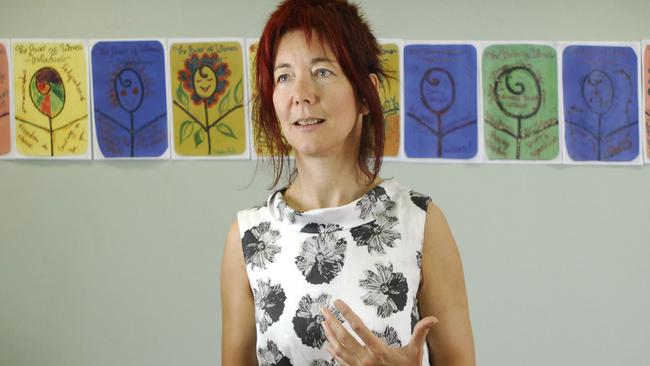Specialist workers to detect family violence perpetrators in drug and alcohol treatment
SPECIALIST workers will be rolled out across Victoria to try to curb family violence attacks made by people with drug, alcohol or mental health issues.

VIC News
Don't miss out on the headlines from VIC News. Followed categories will be added to My News.
SPECIALIST workers will be rolled out across Victoria to try to curb family violence attacks made by people with drug, alcohol or mental health issues.
It is hoped, the family violence advisers, embedded within major alcohol and other drugs services throughout the state, can identify people committing attacks at their home that may not be brought to the attention of other services.
With more than one in five incidents of family violence involving a perpetrator affected by drugs, alcohol or mental health issues, Mental Health Minister Martin Foley said the specialised positions would be placed at the coalface to detect and intervene in assaults much earlier.
The Andrews Government will tomorrow unveil the family violence advisers in each of Victoria’s 17 Department of Health and Human Services areas under a $17.4 million package.
“We know too well the links between alcohol, mental health issues and perpetrating family violence,” Mr Foley said.

“These new staff will be a key asset to family violence organisations to ensure Victorians get the best support as quick as possible.”
One fulltime adviser will be placed in specialist family violence agencies in each area of the state.
They will be supported by a fulltime statewide program co-ordinator under an initial $3.68 million pilot program this year, which will then be expanded in line with the royal commission recommendations.
Renewed efforts over the past decade have seen the courts, police and child protection workforce better involved in the family violence system, however Women’s Health West chief executive Dr Robyn Gregory said the mental health sector still needed stronger integration.
While mental health or substance abuse issues alone should not be considered as a cause of family violence, Dr Gregory said the conditions can exasperate the problem and workers and clinicians were best placed to know the actions and potential for violence of their clients.
“They (mental health workers) are in a really unique position,” Dr Gregory said.

“They will see and be able to identify and respond to family violence incidents by their clients.
“If you are working in relation to mental health every day you might not be thinking family violence, you might be thinking (their actions are) mental health.
“The idea of these advisers is to help the people who work in the mental health and alcohol and other drug services to recognise earlier the potential for violence to occur so they can intervene more quickly.”
As well as detecting aggression among potential perpetrators, Dr Gregory said the workers would be well placed to recognise victims who are suffering depression or substance abuse issues as a consequence of family violence who may not present to other services.
Victoria Police statistics show that the mental health of the perpetrator was recorded as a factor by police in 20 per cent of family violence incidents during 2013-14.
A further 19 per cent of family violence incidents involved perpetrators who are definitely affected by alcohol, while a further 16 per cent involved perpetrators who are “possibly” affected by alcohol.
Drugs were recorded as being “definitely” involved in 9 per cent of family violence incidents in 2013-14, and “possibly” playing a part in a further 21 per cent.


